Get Wheelchair Ramp Installation in Boston, MA
Local contractors in Boston and nearby areas can install wheelchair ramps to improve accessibility for homes, businesses, and public spaces, solving mobility challenges.
If property owners in Boston, MA are considering wheelchair ramp installation, they are likely exploring ways to improve accessibility and safety around their homes or commercial spaces. Installing a well-designed ramp can make daily movement easier for individuals with mobility challenges, enhance independence, and ensure compliance with accessibility standards. Whether upgrading an existing entrance or planning a new addition, understanding the options available and finding experienced service providers in the area can help make the process smoother and more effective.
This page connects visitors with local contractors who specialize in wheelchair ramp installation, providing a resource to compare different service providers and their offerings. Planning such projects involves evaluating factors like ramp design, materials, and installation approaches, tailored to the unique needs of each property. By exploring local options, property owners can find experienced professionals equipped to handle the work efficiently and to meet their specific accessibility goals. Keep reading to learn more about how local contractors can assist with your project.
- Residential properties - homeowners needing accessible entryways for family members or visitors with mobility challenges.
- Commercial buildings - business owners seeking to improve accessibility for customers and employees in busy neighborhoods.
- Public facilities - government or community centers requiring compliant ramps for public access and safety.
- Apartment complexes - property managers looking to install ramps to meet accessibility standards for tenants.
- Healthcare facilities - clinics and senior care centers needing reliable ramps for patient and staff mobility.
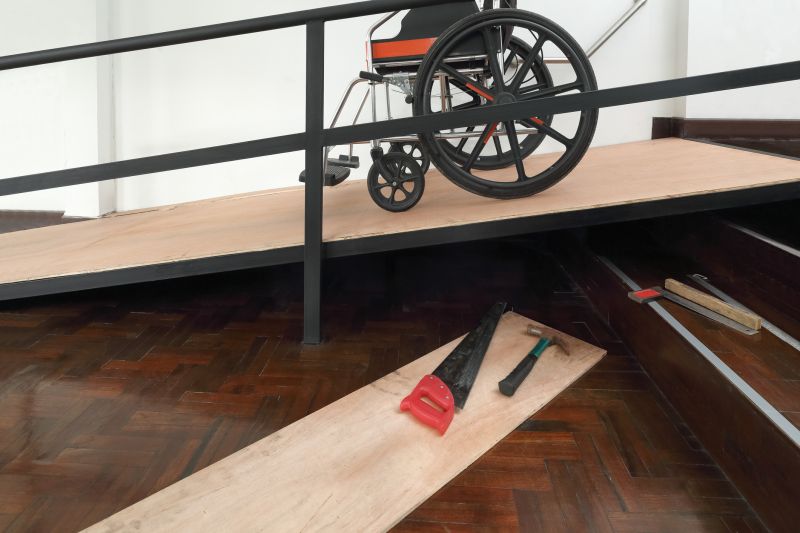
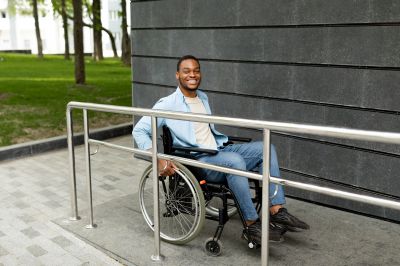
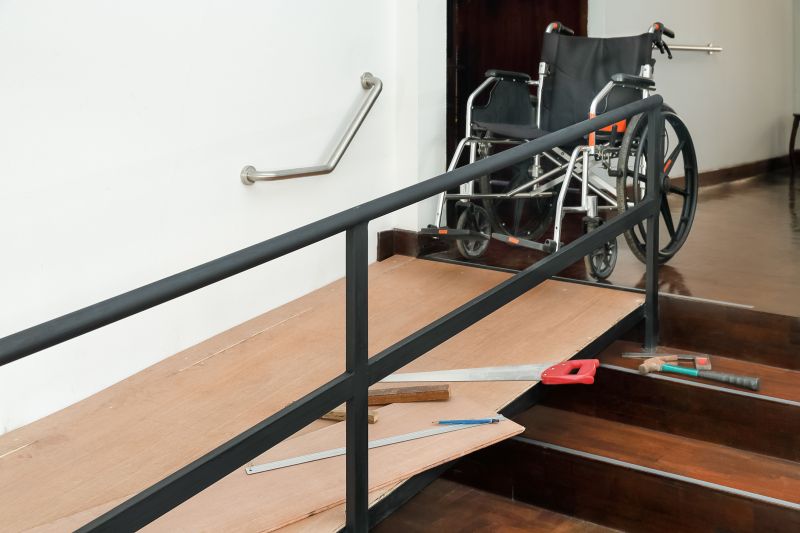
Wheelchair ramp installation involves designing, constructing, and securely attaching ramps to a property to provide safe and accessible entry points. These ramps are typically made from durable materials such as wood, aluminum, or composite, tailored to fit the specific layout of a home or commercial building. The process often includes assessing the property’s entryway, ensuring compliance with accessibility standards, and customizing the ramp’s length, slope, and features to meet individual mobility needs. This service helps create a smooth transition from ground level to doorways, making it easier for individuals with mobility challenges to move independently and safely in their daily routines.
Many common problems are addressed through professional wheelchair ramp installation. For homeowners or residents with limited mobility, stairs can become significant barriers that restrict independence and increase the risk of falls. Installing a ramp provides a safer alternative, reducing the chance of accidents and making it easier to access essential areas like the front porch, garage, or backyard. Additionally, ramps can be essential during recovery from injury or surgery, offering temporary or permanent solutions for mobility. Service providers can also help with modifications to existing structures, ensuring that ramps are properly integrated into the property’s design and meet safety guidelines.
Properties that typically utilize wheelchair ramp installation services include private residences, apartment complexes, assisted living facilities, and commercial buildings. Homes with multiple steps at entry points or uneven terrain often require ramps to ensure full accessibility. Commercial properties, such as retail stores, offices, and public buildings, may also need ramps to comply with accessibility laws and accommodate visitors or employees with mobility devices. Whether it’s a single-family home or a multi-unit building, professional contractors can customize solutions to fit the property’s unique layout and the specific needs of its occupants.
Choosing to work with local service providers ensures that the installation is handled by experts familiar with the area’s building codes and common property types. These professionals can evaluate the property’s layout, recommend suitable ramp designs, and execute the installation efficiently. For homeowners and property managers in Boston, MA, and nearby areas, connecting with experienced contractors can help ensure that the ramp is safe, functional, and durable. When accessibility improvements are needed, reaching out to local pros can make the process straightforward and tailored to the property’s requirements.
The overview below groups typical Wheelchair Ramp Installation projects into broad ranges so you can see how smaller, mid-sized, and larger jobs often compare in Boston, MA.
In many markets, a large share of routine jobs stays in the lower and middle ranges, while only a smaller percentage of projects moves into the highest bands when the work is more complex or site conditions are harder than average.
Smaller Repairs - For minor ramp modifications or repairs, local contractors typically charge between $250 and $600. Many routine jobs fall within this range, especially for simple adjustments or surface repairs on existing ramps.
Standard Ramp Installation - Installing a new, custom wheelchair ramp usually costs between $1,000 and $3,000. This range covers most standard projects in Boston and nearby areas, with fewer jobs reaching higher amounts for more complex designs.
Full Ramp Replacement - Replacing an entire existing ramp with a new structure can range from $3,500 to $7,000. Larger or more intricate projects, such as multi-level or ADA-compliant ramps, can exceed this range, but they are less common.
Complex or Custom Projects - Very large or highly customized ramps, including those with advanced features or extensive modifications, can cost $7,000 and above. These projects are less frequent and typically involve specialized design and installation by local service providers.
Actual totals will depend on details like access to the work area, the scope of the project, and the materials selected, so use these as general starting points rather than exact figures.
Concrete Pathway Construction - local contractors who build accessible pathways often have skills in site preparation, leveling, and durable material installation similar to wheelchair ramp projects.
Handrail and Balustrade Installation - installing support railings for safety and accessibility requires planning and precision comparable to ramp construction.
Home Accessibility Modifications - local service providers who modify entrances and interior spaces for mobility aid access share planning and construction skills with ramp installation.
Patio and Deck Building - constructing outdoor platforms and steps involves similar carpentry and planning expertise used in ramp projects.
Stairlift Installation - installing stairlifts involves understanding of structural support and spatial planning akin to ramp setup.
Flooring and Threshold Replacement - upgrading thresholds and flooring for wheelchair access requires careful measurement and material handling skills similar to ramp installation.
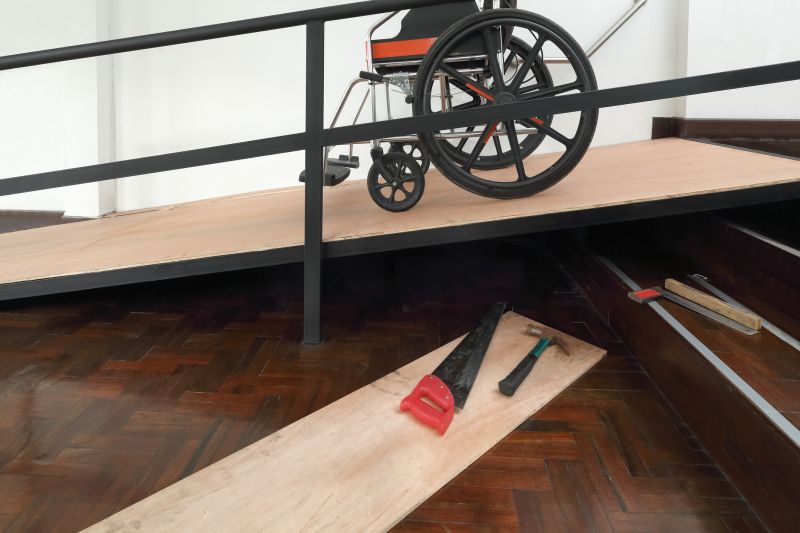
When comparing service providers for wheelchair ramp installation, it’s important to consider their experience with similar projects. Homeowners should inquire about how many ramps they have installed in the past and whether they have worked on projects comparable in size and complexity. An experienced contractor will be familiar with the specific requirements of different home layouts and accessibility needs, which can help ensure the project is completed smoothly and meets the desired functionality. Checking for local contractors who have a proven track record with residential accessibility improvements can provide added confidence in their ability to handle the job effectively.
Clear, written expectations are essential when evaluating potential providers. Homeowners should seek detailed proposals that outline the scope of work, materials to be used, and any relevant specifications. Having this information in writing helps prevent misunderstandings and provides a basis for comparing different options. It’s also helpful to ask for a straightforward explanation of the process, so expectations are aligned from the start. Reputable service providers will be transparent about their methods and ensure that all aspects of the project are clearly communicated before work begins.
Reputation and communication are key factors in selecting a reliable contractor. Homeowners should look for local service providers who can provide reputable references or examples of past projects. Speaking with previous clients can offer insights into the quality of work and professionalism. Additionally, good communication throughout the process-such as prompt responses to questions and clarity about project details-can make the experience smoother and more predictable. While the site introduces homeowners to local options, it is important to verify that the chosen contractor has a history of dependable service and clear, consistent communication to help ensure a successful wheelchair ramp installation.
Property owners in Boston, MA use Wheelchair Ramp Installation services for practical projects around their homes and businesses. This guide focuses on everyday jobs and straightforward project options.
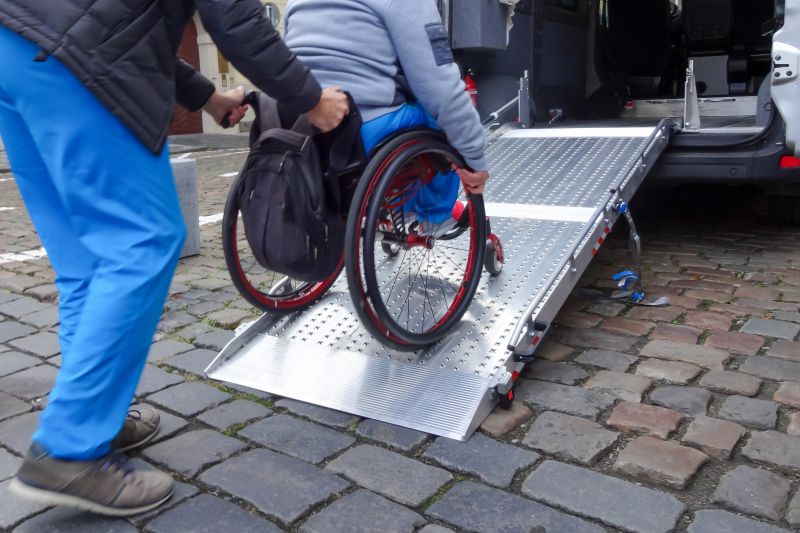
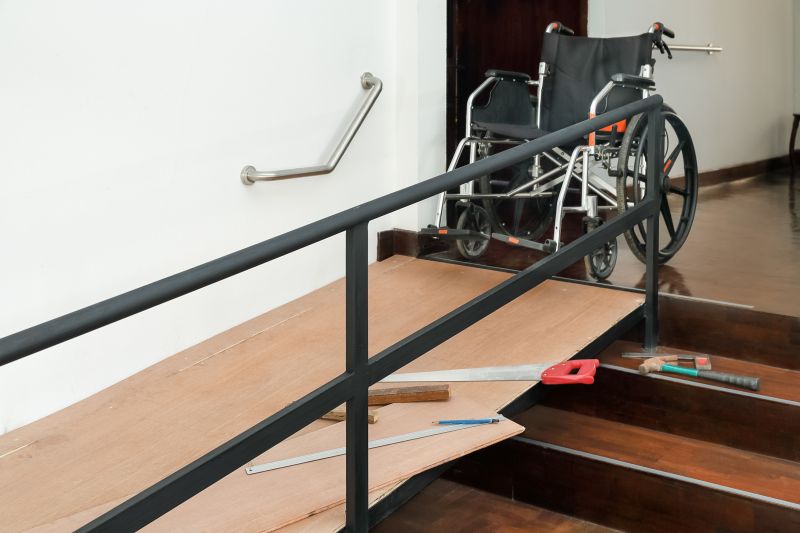
Property owners in Boston, MA may seek wheelchair ramp installation services when making their homes more accessible for daily living or accommodating visitors with mobility challenges. Whether it's a homeowner preparing for aging-in-place, a family welcoming a new member with mobility needs, or a business ensuring compliance with accessibility standards, local contractors can provide solutions that improve safety and convenience. These projects often arise from practical considerations, such as navigating uneven terrain on historic properties or installing ramps that blend seamlessly with existing architecture.
Many property owners look for professional assistance when installing ramps to ensure the work is done safely and efficiently. Local service providers can handle a variety of situations, from adding temporary ramps for short-term use to constructing permanent solutions that enhance property value. Whether it's a residential home in a historic district or a commercial building in downtown Boston, these contractors are equipped to deliver accessible entryways that meet the specific needs of each property.
What types of wheelchair ramps are available for installation? Local contractors can install various types of wheelchair ramps, including modular, portable, and custom-built options to suit different accessibility needs and property layouts.
How do I know if a wheelchair ramp is suitable for my home? Service providers can assess your space, mobility requirements, and safety considerations to recommend appropriate ramp solutions that meet your specific situation.
What materials are commonly used for wheelchair ramps? Common materials include aluminum, wood, and composite materials, each offering different durability and aesthetic options based on the installation environment.
Are there building codes or regulations that affect wheelchair ramp installation? Local contractors are familiar with relevant building codes and safety standards that may influence the design and installation of wheelchair ramps in Boston and nearby areas.
Can a wheelchair ramp be installed indoors or outdoors? Yes, service providers can install wheelchair ramps both inside homes and outside, depending on the accessibility needs and property layout.
Accessibility Improvements - Installing a wheelchair ramp can make entryways more accessible for residents or visitors with mobility challenges. Local contractors can help create safe and functional solutions for everyday use.
Home Modifications - Adding a ramp to a porch or entrance allows for easier access when bringing in groceries, furniture, or other large items. Service providers can customize ramps to fit specific property layouts.
Public and Commercial Spaces - Ensuring storefronts, offices, or community centers have wheelchair ramps promotes inclusivity and complies with accessibility standards. Local pros can install durable ramps suited for high-traffic areas.
Rental Property Adjustments - Property owners can install ramps to accommodate tenants or visitors with mobility needs, enhancing usability and compliance. Local contractors can provide practical solutions for various property types.

If you are thinking about Wheelchair Ramp Installation for a property in Boston, MA, this guide is meant to help you understand the work, the typical project types, and how different options might fit your plans.
When you are ready, you can use the quote form on this page to share a few details about your project. From there, local pros can review the basics and respond with options that match what you have in mind.
